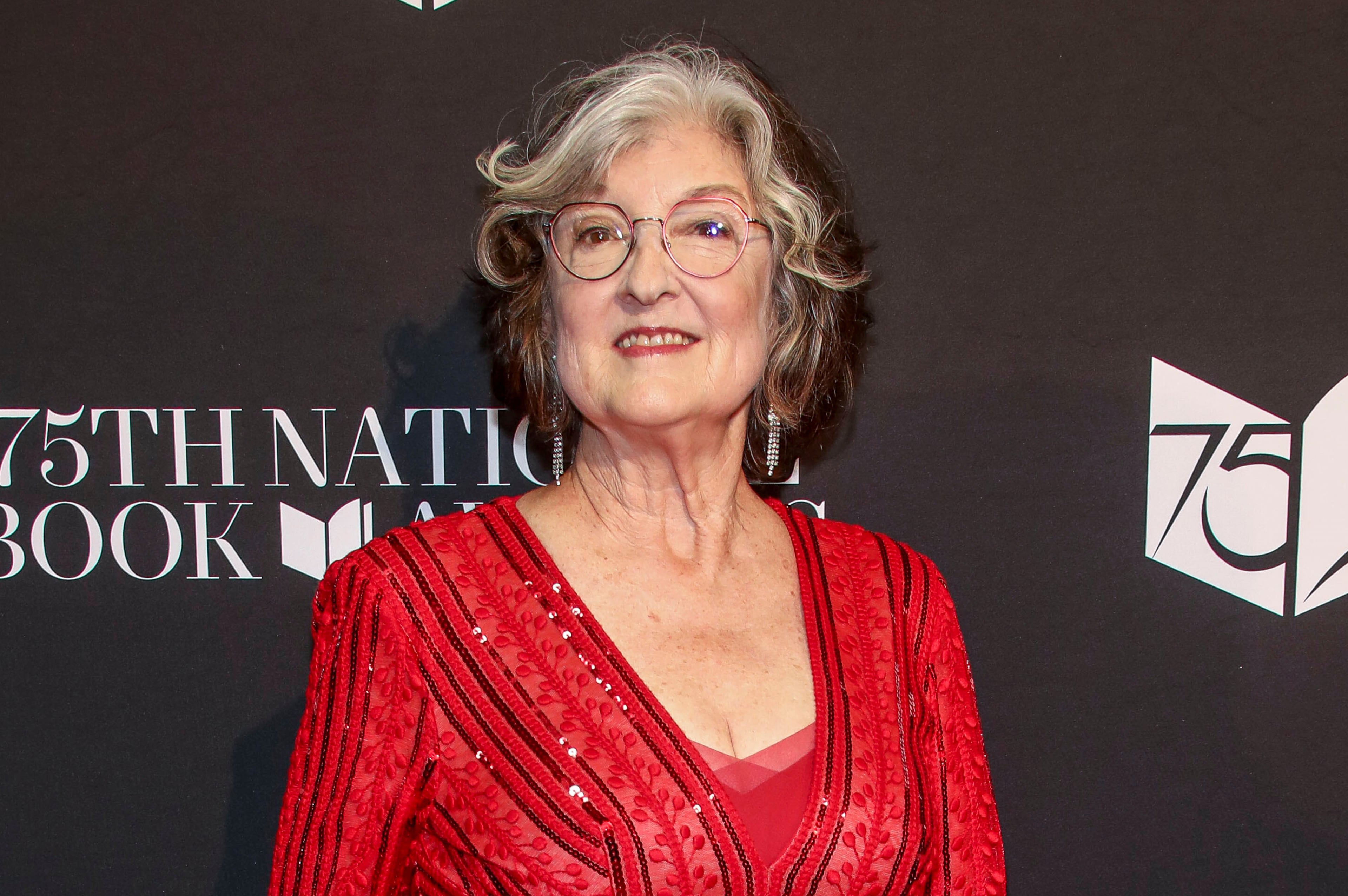‘Genius’: Atlanta poet Jericho Brown on winning $800,000 grant

In 2019, Atlanta-based poet Jericho Brown’s third book, “The Tradition,” introduced “Duplex,” his 14-line poem written in couplets combining Arabic ghazal, sonnet and blues into one form.
Today, “Duplex” is more than a single work; the duplex is considered a new form of poetry that Brown is credited with inventing. His creation, and expressions of vulnerability and self-awareness through experimental art, have earned him a MacArthur Foundation fellowship.
Often called a MacArthur Genius Grant, the prize awards $800,000 in quarterly installments over five years to support creatives and intellectuals. Brown is one of 22 recipients of this year’s grants.
The duplex is Brown’s way of blending his favorite styles of prose to address his concerns on race, humanity, family, spirituality, pop culture and being a Black gay man.
The soft-spoken writer began conceiving of the duplex in 1999 but didn’t incorporate the idea for his unorthodox style of literature into poems for nearly two decades.
“Poetry is language that tells the truth in the most specific and original way. Forms push us in directions where we don’t expect to go,” Brown said.

Brown was driving home from urgent care when former Brown University president Ruth Simmons notified him by phone that he had received the award. He said he was honored to hear the news from Simmons, who graduated from Dillard University, the same historically Black college he attended in New Orleans.
“I wasn’t feeling well, but I forgot I was sick. I had to focus because I wanted to deflect by talking about everything she accomplished and how it inspired my work,” he said.
“The Tradition” earned Brown a Pulitzer Prize for Poetry in 2020 and was named a National Book Award finalist.

Brown said he screamed when he heard his name announced as the winner during the Pulitzer Prize ceremony’s livestream. “I jumped out of the bed and started hitting walls in my house. It was a dream come true,” Brown said.
Brown has been teaching poetry at Emory University since 2012, and he became the director of the school’s Creative Writing Program in 2016.

His ties to Atlanta began in 1996 when he participated in a summer research program led by Rudolph Byrd, the late scholar who founded Emory University’s James Weldon Johnson Institute. Under Byrd’s guidance, Brown learned about Black queer writers and scholars like Alice Walker, Essex Hemphill and Marlon Riggs in the Emory Libraries’ extensive archives.
“It was an opportunity for me to learn about the history of Black scholarship. He introduced me to all of these writers and filmmakers who I had no idea existed but became my greatest influences,” Brown said.
“Reality Show,” an alliterative blues poems published in Brown’s 2014 book, “The New Testament,” mentions metro Atlanta suburbs in verse. He said Atlanta helped him find his voice as a writer.
“It was the perfect place for me to be able to grow,” he said. “Pieces of Atlanta pop up in my poems all the time because it helps me have a different understanding of what the South is and who’s here. I’m able to feel free to write whatever I need to write.”
Brown was born Nelson Demery III in Shreveport, Louisiana. He regularly recited work by Black poets like Langston Hughes, Maya Angelou, Paul Laurence Dunbar and Nikki Giovanni at his church as a kid.
He connected with poetry at the public library, where his mother would drop him off while she ran errands. Brown said he regularly finished poetry books and anthologies before she picked him up.
“She didn’t have to worry about me tearing up anything,” Brown said. “It was an accomplishment to get through as many pages as I could in a short period of time. The librarians became my babysitters and started having stacks of poetry books waiting for me.”
In 2002, he legally changed his name to Jericho Brown. Afraid to tell his family he wanted to pursue a writing career, his pseudonym was his way of creating a new identity as a proud, Black, same-gender-loving man.
“I was sharing something with my father and grandfather that wasn’t my own. I was saying things in my poems that I knew they would not like for me to say, and I wanted to know what I believed,” he said.

In 2007, he landed his first teaching job at the University of San Diego. The following year, he released his debut book, “Please,” which earned an American Book Award.
Five years later, Brown relocated to Atlanta because he started feeling homesick. “I really wanted to get back to the South because I was missing my family,” he said.
Brown’s poetry has earned heavy praise and recognition, including from the National Endowment for the Arts, Guggenheim Foundation and Radcliffe Institute for Advanced Study at Harvard University. He was elected chancellor of the Academy of American Poets this year.
Sharing that he’s working on a fourth book, “Remote Control,” which will examine how gun violence can result in loneliness and alienation, Brown compared writing poetry to regularly exercising and offered advice for other literary artists.
“Start small and work your way up over time,” he said. “If you do something towards the thing you love every day, you’ll have more to look at, deal with and love.”
Become a member of UATL for more stories like this in our free newsletter and other membership benefits.
Follow UATL on Facebook, on X, TikTok and Instagram.


